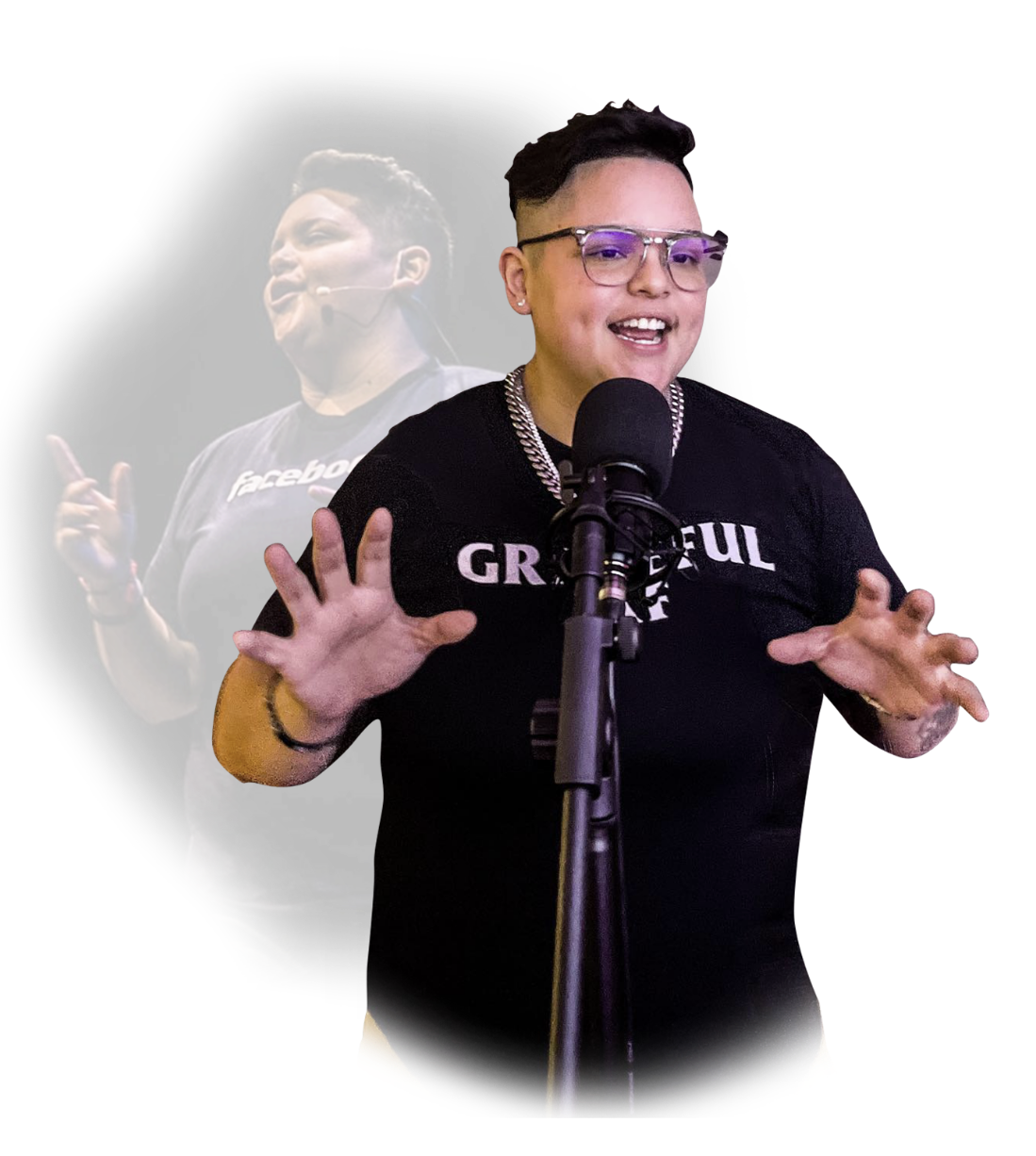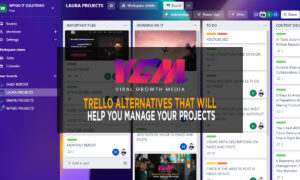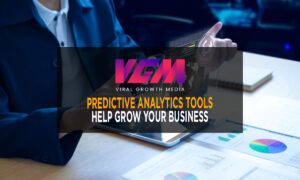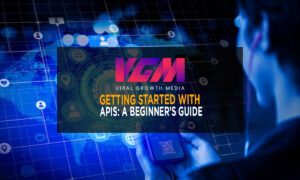When it comes to Facebook marketing, there are two main ways to promote your business: sponsored posts and Facebook ads. But what’s the difference? And which one is best for your business? In this blog post, we will discuss the pros and cons of each type of Facebook marketing, so that you can decide which one is right for you!
Facebook Sponsored Posts
Facebook sponsored posts are a great way to promote your business on Facebook. They are essentially just like any other post on Facebook, except that they are marked as “sponsored” and appear in the news feeds of people who have liked your page. Sponsored posts can be a great way to reach a wider audience on Facebook, and they are generally less expensive than Facebook ads. However, there are some downsides to sponsored posts. First, they can sometimes be less effective than ads, because people may not see them as often in their newsfeeds. Second, Facebook only allows you to target a limited number of people with your sponsored post, so you may not reach as many people as you would with an ad.
Facebook ads are a more traditional form of advertising, and they can be a great way to promote your business on Facebook. Facebook ads allow you to target a specific audience, and they can be very effective in reaching people who are interested in what you have to offer. However, Facebook ads can be more expensive than sponsored posts, and they may not be as effective if you are not targeting the right audience.
Pros:
-Can be targeted to a very specific audience
-Less expensive than Facebook ads
-Can be booste posts from your Facebook page Cons:
-May not reach as many people as Facebook ads
-Can be less effective than Facebook ads

Facebook Ads
Are a great way to reach out to potential customers on the largest social media platform in the world. Facebook Sponsored Posts are another way businesses can take advantage of Facebook’s massive user base, but they work differently than Facebook Ads. So, which is best for your business? Let’s take a closer look.
Facebook Ads are paid advertisements that businesses can use to promote their products or services on Facebook. Facebook Sponsored Posts are organic posts from businesses that have been given a boost by being promoted on Facebook. So, what’s the difference?
Pros:
-Can reach a larger audience than sponsored posts
-More flexible targeting options than sponsored posts
-Can be more effective than sponsored posts Cons:
-More expensive than sponsored posts
-May not be as targeted as sponsored posts
So, which is best for your business? It really depends on your goals and budget. If you want to reach a large number of people with your message, then Facebook ads may be the way to go. However, if you’re looking to target a specific audience with your message, then Facebook sponsored posts may be a better option. Ultimately, it’s up to you to decide which type of Facebook marketing is right for your business!
Do you have any questions about Facebook marketing? Leave us a comment below and we’ll be happy to help!
Sponsored posts on Facebook are less expensive than Facebook ads but they also may not reach as many people. So if you want to reach a larger audience, Facebook ads are the way to go. If you’re looking to target a specific audience, Facebook sponsored posts may be better. It all depends on what your goals and budget are.
Facebook Sponsored Posts: What You Need To Know
Are you new to Facebook Sponsored Posts? It’s no problem. Let me give you the low down. sponsored or “boosted” posts are material that a firm has paid to promote on Facebook. These sponsored postings appear on the company’s timeline as organic content or existing posts, with the exception being that they receive greater exposure due to their use of advertising. With Facebook’s declining organic reach for companies, it’s more important than ever for firms and marketers to execute effective paid promotion in order to boost their business page views.
To put it another way, if you want to make sure that as many of your fans and followers as possible may see your material. Over the previous years, organic Facebook reach for businesses has dropped dramatically (graph above). Sponsored content is treated in the same manner as any other post from your brand. This improves the user’s experience by ensuring that their social media activities are not disrupted.
Be sure to match your sponsored content with your target audience and use language that won’t turn them off. You want to appear in their news feeds, so make sure the content is quality and valuable. Entertainment or helpfulness are always welcome traits here.
Here are some important things to remember when using Facebook sponsored posts:
- The best way to use sponsored Facebook posts is when you want more people to interact with a certain post or piece of content.
- A recent update to sponsored post content allows you to better guide users toward your site or landing page, rather than just having them engage with your post.
- Sponsored posts are only beneficial when you’re promoting an existing page.
- There is only one format for sponsored posts, even though you may post various sorts of material.
- Your sponsored post can be displayed on both the desktop and mobile versions of the news feed.
In the end, sponsored post content may be quickly and simply produced because there are fewer options for you to choose from than with a Facebook ad campaign. Focusing on increasing popular content is one way to get the most out of your sponsored postings.

Facebook Ads: What You Need To Know
Now that you understand what Facebook sponsored posts are and how they work, let’s explore Facebook advertising more in-depth.
Advertisement on Facebook has become an integral method for contemporary businesses’ social media marketing.
Facebook advertising is not only affordable, but it’s also simple to manage thanks to Facebook’s advanced targeting tools. Small companies may maximise the effectiveness of their social ad expenditure by targeting the most relevant, custom audiences.
You can begin creating a Facebook ad by going to the Facebook Ad Manager platform. The objective you select for your ad campaign will impact what kind of ad format and placement is suitable for your needs.
You can choose one of the following objectives when you create a new Facebook Ad with Facebook Ads Manager. Once you’ve decided on your Facebook ad goal and placement. You’ll be able to fine-tune your audience using Facebook’s sophisticated ad targeting capabilities, as well as target those who are most likely to be interested in your business.
There are a number of different ways that you can target your Facebook ad audience:
-Location
Meteoric success is awaiting companies who use Proof to boost their sales and conversions by targeting potential customers based on location. If you have a physical storefront or want to advertise region-specific sales/promotions, this tool was made for you!
-Age
You can target your ad audience based on their age if your brand’s target market is within a certain age range.
-Gender
Gender targeting may not be suitable for every business. However, if your target market is composed of a certain gender, this option could be useful.
-Interests
You can target potential customers on Facebook by finding users with interests that match your product or service.
-Behaviours
This is certainly one of Facebook Ad Manager’s most valuable targeting tools. You can target people who have taken particular actions or exhibited specific attitudes that are consistent with your desired audience.

The Verdict: Facebook Sponsored Posts vs. Facebook Ads
No single method is the best way to reach your Facebook audience through paid content. The choice of using Facebook sponsored posts or Facebook ads will come down to what your company’s goals and budget are, as well as the digital marketing strategy you have in place.
Some businesses use a combination of both kinds of paid promotions, depending on each social media campaign’s details.
Before you choose a paid promotion format on Facebook, consider your objective. Sponsored posts are a fast and simple method to raise brand exposure and engage more of your Facebook fans. If your goal is to increase the visibility of a post on your company’s timeline or enhance brand recognition, this low-cost option might be the best way to go.
Here are just a few occasions where you may want to use sponsored Facebook posts instead of a Facebook ad:
-Improving visibility for popular content
You can greatly improve your website’s performance by detecting which pieces of content are more popular than others, and then boosting these posts to increase visibility.
-Getting the word out about events
You may create a sponsored Facebook post announcing an upcoming event in order to boost attendance and enhance social proof.
-Sharing user-generated content
When your business has user-generated content that you want to share, boosting the post can help generate new followers and improve brand trust.
-Making important announcements
If your company has something major to announce, such as the opening of a new site or the launch of a new product. You may use sponsored posts to boost exposure and interaction.
How to Boost a Post?
Step 1:
Click the blue “Boost Post” button in the lower-right corner of your screen.
Step 2:
You have three options to choose from:
-Send people to your website:
People who are most likely to click on your publish will be more likely to see it, since they are looking for the same thing as you. When someone clicks on the ad, they will be sent to your chosen landing page.
-Get more people to react, comment, and share:
Your post will be seen by audiences who are most likely to engage with your content.
-Connect and chat with potential customers:
When they click your ad, you may begin a Messenger conversation with your target audience.
Step 3: Choose your post button.
Choose your call-to-action button based on the action you want audiences to take and the landing page where the ad will redirect them. For example, if you’re using Messenger as your landing page after choosing the “connect and chat” objective, then choose the “Send Message” button from the list. However, if you selected the “send people to your website” objective and have a product catalogue set as your desired landing page instead, then opt for shop Now.’
Step 4: Choose your audience.
Your audience will be the people who see your post on Facebook. You may create an audience based on location, age, or relationship ties. A Custom Audience is also available.
Step 5: Choose your placements and budget.
The Facebook ad placements you choose will be where your boosted post appears. If you opt for automatic placement, your post will run on Facebook, Messenger, and Instagram. However, if you don’t want automatic placement, you can select the manual option to pick and choose where you want your post to appear. Lastly, decide how much money you want to spend and for how long you want the ad campaign to run.
Step 6: Turn on your Facebook Pixel
You’ll need to turn on your Facebook Pixel by sliding the toggle button to the right. It’s key to take this step since the pixel will help you assess your target audience’s behaviour and retarget anyone who interacted with your ad but didn’t convert.
The Good
There are two advantages to employing a boosted post. For one, it aids in the acquisition of as many interactions as possible for that one article. This aids in the growth of brand awareness and page followers. This also improves social proof for your company. Users will be curious about what the big deal is, and they’ll want to learn more after seeing how many people are engaging with your material.
Another benefit is the ability to choose your target audience. You can target people by their geographical location, age group, and hobbies. If you want to reach more consumers on Instagram, you may run your promotion there as well. nIf you’re completely new to Facebook advertising, sponsored posts are a fantastic way to get started, especially if you don’t have a huge budget to spend on ad creative.
The Not-So-Good
A disadvantage of sponsored posts is that you are not able to be creative with many formats. A boosted post is delivered as-is when you boost it. You don’t have the option to create your promoted article as a Carousel, Canvas, or Lead ad, for example. In comparison with Facebook ads, sponsored posts are far more limited in terms of format options.
You may only advertise with sponsored posts if you have a high amount of followers. You also have a restricted number of placement alternatives, and bidding is not enabled. You can pick the maximum average bid or per-bid rate, as well as whether you want to shell out for impressions, clicks, or other metrics. For sponsored postings, the only placement alternatives available are Facebook News Feed and Instagram. Facebook advertisements allow you to select from a wider range of locations (more on that later).

When to Use Sponsored Posts?
Sponsored posts are a bit more limited than sponsored stories, but they may be useful in specific situations, particularly when you wish to raise brand recognition and build social proof. Here are some examples of situations in which sponsored posts are ideal:
- You want to make a big announcement.
- You want to promote an upcoming event to both create social proof and increase attendance to the event.
- You have user-generated content on your Page that can gain customer trust and garner new followers.
What Are Facebook Ads?
Facebook advertising differs from sponsored postings in that it requires more strategic planning and greater creative freedom, as well as targeting possibilities and performance data. When you’re looking to build a more polished, professional, and refined campaign, Facebook advertisements are the way to go.
The Good
There are several advantages to incorporating Facebook ads into your business strategy. One key benefit is that, unlike sponsored posts, Facebook ads offer more objectives to choose from to ensure your campaign is successful. While sponsored posts only have engagement, Messenger, and website traffic objectives, Facebookads also include video views and lead generation as options. This diversity allows you to create a custom campaign tailored specifically to your goals.
- Store traffic
- Conversions
- Catalogue sales
- Lead generation
- Video views
- App instals
- Brand awareness
- Reach
The five business goals outlined above provide you additional ways to achieve your company objectives. For example, if you want more people to download your app, the app instals objective will be useful in generating advertisements that are aimed at this goal. Facebook will then assist you in delivering your ads to people most likely to download your product. Similarly, if you want to create leads for your company, you may use the lead generation objective to produce advertising that gathers leads from your intended audience.
Facebook ads provide you with a greater choice of placement options than sponsored posts. You can place your ad on Facebook News Feed, Instagram, and the following additional locations:
- Marketplace
- Right Column
- Suggested Videos
- Facebook Stories
- Facebook Instant Articles
- Instagram Stories
- Instant Articles
- Messenger
- Audience Network
- Facebook In-Stream Videos
More precise audience targeting is available through Facebook advertising. You may also overlap various customizations in addition to the basic targeting choices, such as by age, location, and gender. For example, you can base your targeting on interests, behaviours, and demographics. You could also upload a Custom Audience or create a Lookalike Audience. A Custom Audience is compiled from a list of leads that you’ve already collected that you then upload onto Facebook. From there, Facebook uses the information to deliver your ads straight to users who are on that list. Meanwhile, a Lookalike Audience does the same for new users but with those whose data looks similar to your Custom Audiences’.
Facebook ads also give you the choice to use in-depth manual bidding. You can set a maximum average bid or maximum per-bid rate, and whether you want to pay for impressions, clicks, or other options. If you want to expand your Facebook advertising efforts, then manual bidding is a useful option.
Another advantage of Facebook advertising is the opportunity to access detailed tracking and campaign metrics. You may, for example, add the Facebook Pixel to your website to monitor activity on your site in relation to a Facebook ad they clicked. This allows you to see how your ads are being used by your audience and assess whether they are producing the results you want. Last year, Facebook also announced that it was simplifying its ad metrics with new categories, making it easier than ever to understand your campaigns.
Last but not least, the wide range of ad formats available, including Carousel Ads, Canvas Ads, Stories, video, and articles, is another incentive to utilise Facebook ads. Users get weary of seeing the identical advertisements over and over. Facebook advertising allows you to deliver the same message in a variety of ways to keep your audience engaged and feel as if they’re seeing fresh material. As a result, your business has a more polished look.
The Not-So-Good
There are relatively few drawbacks to utilising Facebook advertising in terms of efficacy. However, if you don’t have a lot of money and can’t use Facebook ads in regular campaigns, they may not be the best option for you (yet). Facebook advertising is also a tough method to master; understanding performance indicators and developing the most efficient advertisements for your company’s needs might be difficult. You could waste a lot of cash on a failed campaign if you aren’t familiar with the process.
By hiring a Facebook advertising agency, you increase your chances of having a successful campaign. The agency will know what works and save you time to focus on other parts of your business.

When to Use Facebook Ads?
The majority of the time, Facebook advertising is preferable to sponsored stories. The advantages are almost always well worth the money, and there is considerably more flexibility. Here are some of the benefits of employing Facebook advertisements:
- You want more creative options.
- You have a specific audience you want to target.
- You want to acquire new customers.
- You want to reach existing customers.
- You want access to detailed campaign metrics.
- You want to use the Facebook Pixel.
- You have a very specific campaign objective.
- You want to access more placements.
- You want to use manual bidding.
Promoted posts, for example, may help you achieve low cost per acquisition (CPA) or cost per click (CPC). Again, hiring a Facebook advertising agency is one of the most effective techniques to keep your costs low while achieving good results.
Conclusion:
So, which is the best type of Facebook marketing for your business? It depends on what you’re looking for. Sponsored posts are great if you want to reach a larger audience and increase brand awareness. However, if you’re looking for conversions or website traffic, then Facebook ads might be a better option. As always, it’s important to test different strategies and see what works best for your business. Have you tried using sponsored posts or Facebook ads to market your business? What results did you achieve?























